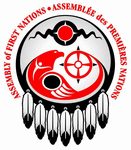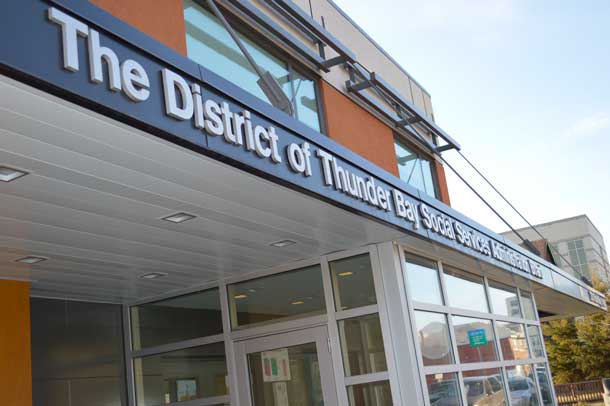 THUNDER BAY – The issue of education, education funding and Canada’s First Nations is atop the agenda for the Assembly of First Nations. The Assembly of First Nations (AFN) are moving forward with the federal government to seek solutions on the issue of Aboriginal education funding, schools and related issues. While the Nishnawbe Aski Nation (NAN) have stated they are opting of of the process, the AFN is moving forward.
THUNDER BAY – The issue of education, education funding and Canada’s First Nations is atop the agenda for the Assembly of First Nations. The Assembly of First Nations (AFN) are moving forward with the federal government to seek solutions on the issue of Aboriginal education funding, schools and related issues. While the Nishnawbe Aski Nation (NAN) have stated they are opting of of the process, the AFN is moving forward.
The AFN today released a statement regarding the National Panel on First Nations Elementary and Secondary Education:
“The advocacy and facilitative work of the AFN is mandated by First Nation leadership (Chiefs) across Canada based on First Nation rights, Treaties and jurisdiction. The AFN does not have a mandate to negotiate legislation nor are we engaged in this activity in any way.
“The AFN is mandated to support First Nations control of First Nation education, including advocating for a statutory guarantee of funding to ensure equity and fairness and ultimately enable the success of First Nation learners.
“To this end, the AFN issued a Call to Action on First Nation education in June 2010. The work of the National Panel on First Nations Elementary and Secondary Education is one avenue to advance these interests and confirms the federal government commitment to improving First Nation education. The AFN fully respects all other approaches and avenues being pursued by First Nations to support First Nations control of First Nation education.
“The main priority in this work is supporting First Nation student success because education is key to unlocking the full potential of First Nation citizens. The well-being of our children and their futures remain the focus.
“Another generation must not be lost”.
The AFN is working forward on a motion passed that the recent Assembly of First Nations Annual General Meeting in Moncton.
WHEREAS:
A. Article 14 of the United Nations Declaration on the Rights of Indigenous Peoples (UNDRIP), endorsed by the Government of Canada on November 12, 2010, states: “Indigenous peoples have the right to establish and control their educational systems and institutions providing education in their own languages, in a manner appropriate to their cultural methods of teaching and learning” and obligates State governments to “take effective measures, in order for Indigenous individuals… to have access, when possible, to an education in their own culture and provided in their own language.”
B. Canada ratified the United Nations Convention on the Rights of the Child in December, 1991 which includes Article 29 confirming that “State Parties agree that the education of the child shall be directed to [among other items]… The development of respect for the child’s parents, his or her own cultural identity, language and values…”.
C. In June, 2010 the National Chief of the Assembly of First Nations (AFN) issued a Call to Action on Education to all people in Canada, including the public and private sector, to join with the AFN in calling for an education guarantee which includes, but is not limited to:; recognition of First Nations education systems including Indigenous Institutes of Higher Learning and curricula which reflects Indigenous languages and cultures; a statutory guarantee of adequate, sustainable, and indexed funding for First Nations schools and systems; and public and private sector partnerships to support positive learning environments for First Nations people.
D. In July, 2010 the AFN Chiefs-in-Assembly confirmed education as a priority and adopted the First Nations Control of First Nations Education 2010 policy document.
E. In September 2010 the AFN launched a Week of Action on First Nations Education, which included advocacy and events on Parliament Hill.
F. In November 2010, a motion was introduced in Parliament calling for equitable funding for all aspects of First Nations education, in the memory of Shannen Koostachin. This launched the Shannen’s Dream movement which is aiming to have a million person march in Ottawa in June 2012.
G. In December 2010, a private members bill was introduced calling upon the Government of Canada to work with First Nations on a statutory funding guarantee for First Nations schools.
H. In January and March, 2011 the AFN hosted Virtual Summits on Post-Secondary education and Indigenous Institutes of Higher Learning involving over 1500 participants online.
I. Relationships have been established with mainstream education organizations, business, industry, and governments, all united in calling for fairness, justice and equity in First Nations education.
J. The Auditor General of Canada issued a report in June 2011 expressing concern with the Federal government’s lack of progress on the implementation of education recommendations from previous reports in 2000 and 2004 and noted that “In 2004, we noted that at existing rates, it would take 28 years for First Nations communities to reach the national average (for secondary school graduation)… More recent trends suggest that the time needed may be still longer.”
K. Provincial and territorial governments have called for a Council of the Federation meeting on First Nation issues including education.
L. In December, 2010, the Prime Minister expressed support in a letter to the AFN National Chief for addressing First Nation education, and the Government of Canada announced a National Panel on K-12 First Nation education to engage First Nations on developing a path forward.
M. The National Panel will table a non-binding report to the Minister of Aboriginal Affairs and the AFN National Chief focused primarily on legislation and funding for First Nations education and leading to a new stage of engagement.
N. There is a strong national movement for fundamental change in First Nations education.
O. The Federal government has drastically underfunded First Nations education in general and First Nations schools in particular, and recently announced funding holdbacks of 15% or more for First Nations proposal based programs without indicating whether this is a temporary or permanent measure.
THEREFORE BE IT RESOLVED that the Chiefs-in-Assembly:
1. Reaffirm the obligation of the Federal government to work with our Nations to implement the Inherent and Treaty Right to education which is recognized and affirmed in Section 35 of the Constitution Act and in the United Nations Declaration on the Rights of Indigenous Peoples (UNDRIP).
2. Assert that all agreements between the Federal government and First Nations should include a clause which affirms the commitment of the Federal government to implement the principles of the UNDRIP.
3. Encourage all First Nations to involve their youth and all citizens in advancing the Call to Action on Education by initiating local activities which build alliances, and call attention to the inequities and solutions required in First Nations education.
4. Call upon the National Chief to work with the AFN Chiefs Committee on Education to develop a strategy for engagement with the Federal government in anticipation of the completion of the report of the National Panel.
5. Direct the National Chief to inform the Minister of Aboriginal Affairs, the Minister of Finance and the Minister of Treasury Board Secretariat that 2011-12 funding for First Nations targeted programs must be fully restored to budgeted amounts prior to the holdback.






